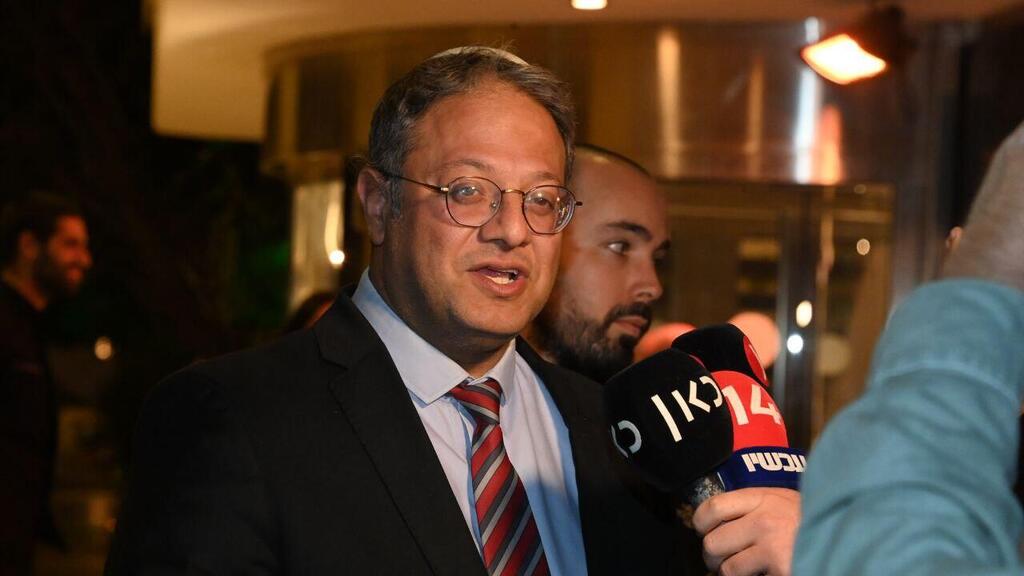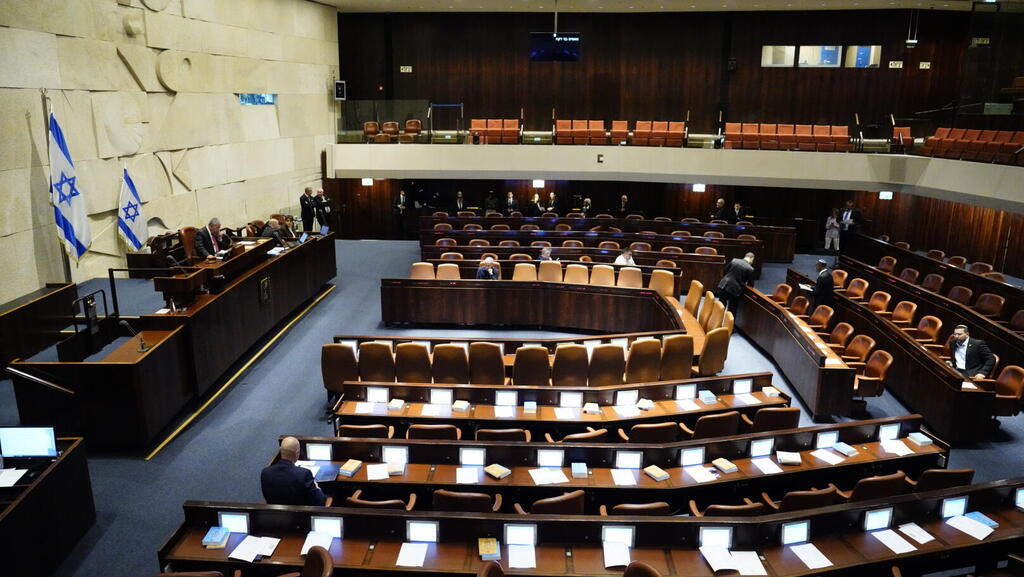A new bill submitted by the incoming public security minister in Israel has caused an uproar in the country.
The proposed law, which amends the existing police law, was drafted by far-right politician Itamar Ben-Gvir. It changes the balance of power between the police and the political echelon, granting the minister in charge of the police greater authority.
As incoming public security minister, Ben-Gvir will oversee the country’s police force. The new balance of power would give him more power over the police than any minister has had since the establishment of the State of Israel.
Ben-Gvir will be heading a new office, formerly the public security office, with extensive authority. The bill will not only make him a de facto police chief, but Ben-Gvir has also been given authority over border police’s operations in the West Bank; until now, these were under Israeli military command. The border police operate mainly in the West Bank, in territories mainly populated by Palestinians.
Ben-Gvir, a lawyer who made headlines by defending radical Jews, many of them West Bank settlers, in high-profile cases, became a member of parliament for the first time last year.
“He has no experience in such hierarchal organizations,” said David Tsur, a former senior police officer who led Israel’s border police and its counterterrorism unit. “He, therefore, does not understand how the police actually works. He is wrong in thinking he cannot influence policy unless given this authority by the law he proposes.”
According to the amendment, the minister will determine police policy. Until now, it was the police chief who determined the policy and its implementation. The minister will also be able to determine which offenses merit investigation and enforcement, while deciding which can be ignored.
While this does not give the minister the ability to decide on specific investigations, he would be able to outline general investigation guidelines.
The explanation for the bill added at the bottom of the proposal notes that “the founding principle in a modern democracy is that the political leadership, i.e., its elected representatives, delineate and direct policy, and the executive leadership implements this policy.”
Former senior police officers were quick to condemn the proposal. One anonymous officer posted an online death notice for the police, saying the body would be laid to rest once the law was approved.
“It cannot be allowed for the police to be politically biased,” said Tsur. “The only thing commanding the police is the law.”
Media reported that the law would be voted on later this week, even before the swearing-in of the government.
During the last election campaign, which ended last month in a show of power for Ben-Gvir, he was critical of the soft hand that he claimed, the police had taken against crime, particularly against non-Jewish suspects of offenses against Jews.
“There is a claim that there is lack of governance in certain areas in Israel,” said Ariel Barzilay, a lawyer and head of the economic wing at the Movement for Quality Government. “They think that if they strengthen the politicians at the expense of police independence, this will solve the problem.”
Ben-Gvir has been openly critical of what he sees as a lack of governance in Israel’s South – an area plagued by soaring rates of violence and crime – and has vowed to crack down on offenders. Ben-Gvir has often referred to the large Bedouin population in the region as “terrorists.”
There is little disagreement on the fact that the situation on the ground needs to change. The question is how and using what measures.
“It is hard for bitter people to come to terms with the fact that the people want a strong and clear policy,” Ben-Gvir tweeted in response to public criticism of the proposed bill.
The media reported that the attorney general was against the law. Ben-Gvir voiced his disappointment in various interviews, tweeting several times against her directly, showing her examples of what he sees as lack of governance.
Former police brass have warned of Ben-Gvir’s intentions throughout his catapult into the mainstream of Israeli politics.
Both the current Public Security Minister Omer Barlev and his deputy, Yoav Segalovitz, declined to comment.
On his Twitter account, Barlev called the proposal a “lethal blow to the police,” adding that it was “running over democracy.”
Ben-Gvir was also unwilling to comment.
The law will essentially make the status of the police similar to that of the military, whose policy is formed by the government.
The afterword to the bill includes a comparison to the Israeli military, using it as an example of how Ben-Gvir thinks things should function.
“The military does not act within the country; therefore it is even desired that the defense minister is the one who determines its policy,” Barzilay explained. “It is very important to maintain the disconnect between the police and the political level. The police work within civil society and we do not want a politician making the police their own militia, subject to their political agenda.”
“The law harms the objectivity of the police toward the citizens,” he added.
“The police commissioner is independent for good reason,” said Tsur. “He has the authority to use force to protect civilians or against them; this interface needs to be restrained and completely disconnected from a political context.”
It will also give the minister control over the police budget, providing Ben-Gvir the ability to close certain police units and prioritize others.
“This is not just semantics, this is a fundamental change to how the police work,” said Tsur. “We might see absurd situations in which the police commissioner will have to appeal to the Supreme Court, which will create a lot of friction and harm the police.”
Incoming Prime Minister-designate Binyamin Netanyahu is currently on trial for several corruption charges. Mutual political debt between the two could be settled through the police. Netanyahu needs Ben-Gvir’s support within the coalition and could be unable, or unwilling, to oppose any of his intended moves in the police.
“The problem with a prime minister under trial is not only a moral one,” said Barzilay. “He is subject to pressure and can be extorted in order to guarantee his survival.”
Ben-Gvir’s proposal is part of a wide range of reforms the incoming government intends to implement. Perhaps the most influential and contentious one is the introduction of an override clause that would allow the parliament to cancel Supreme Court decisions to void legislation.
The proposals have opponents warning of fundamental changes to Israel’s democratic nature.
“The mechanisms of the law in the country are being shifted to be under political authority,” Barzilay said. “One change doesn’t make Israel undemocratic but in a series of changes, each change gradually erodes the fabric of democracy in the country. All these things add up to something undemocratic.”
With a solid majority in Israel’s parliament, the Knesset, the bill will likely pass. According to reports, the bill will be expedited. Private bills are usually subject to a 45-day reading period for the public. This could be canceled by the ruling coalition.
It is unclear why the haste on this law. It could have to do with the mistrust of Netanyahu, even among his political allies. Netanyahu has broken many political promises in advance and Ben-Gvir apparently wants to secure the extensive authority guaranteed to him before taking office.
“Netanyahu may not believe in all of these changes, but he has little maneuvering room,” said Tsur. “This is a slippery slope.”
The story is written by Keren Setton and reprinted with permission from The Media Line







